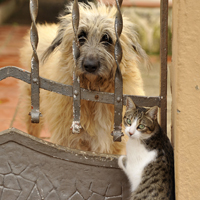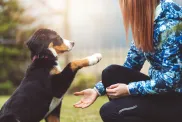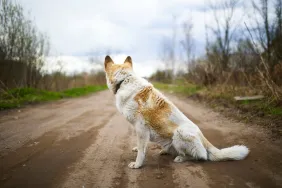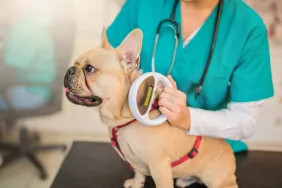Pooka, a Dachshund mix, was found wandering late at night in New Mexico, showing physical evidence of having given birth just days before. Holly, a calico cat, was so emaciated when she showed up under a Florida porch, she could barely stand. Oreo, a Shih Tzu, was found matted and missing an eye in a Washington neighborhood. These pets may have all looked like abandoned strays, but they weren’t. Every one of them had a loving home that had lost them months, or even years, before. And each of their families was thrilled to have their pets back home.
The losses were accidental. Even the most conscientious pet owner can leave open a gate, drop a leash, or overlook a hole under the fence. But many people, had they found these animals alone in the street, would not search for the owners because, in the condition that the pets were found, they would believe them to be unloved and neglected.
Those of us who’ve had long-haired dogs know a freshly groomed pooch can go out for a walk looking picture perfect. But add wind, humidity, and a couple of irresistible mud puddles, and your Terrier has turned into a tumbleweed. Now imagine your spoiled pet, lost on the streets, without regular food, water, or shelter for weeks or months. Furry tangles would be just the beginning of their issues.
All too often, well-intentioned animal lovers assume a skinny, dirty animal has not been well cared-for, as was the case with Mackenzie. The 11-year-old Cocker Spaniel was lost for two months before being found by someone who claimed that she was “dirty and limping,” and refused to give the dog back to her devastated owners. One can only imagine the emotional turmoil they are going through, knowing the dog they’ve had for more than a decade is being held hostage by someone self-righteously thinking they must not miss her every day.
Microchipping is one way to ensure permanent proof of pet ownership, but finders need to take the time to have the pet scanned and pet owners need to take the time to keep their personal information current. While microchips do not work as GPS devices, they can provide owner information to a shelter or vet clinic, and if it comes to legal action, they can provide definitive proof of ownership. With the five-second procedure available at nearly every vet clinic, pet owners should consider microchipping as much a part of the first veterinary check-up as vaccinations.
Shelters, rescues, and good Samaritans need to put in reasonable efforts to see if an animal has a heartbroken family out there before putting that animal up for adoption or passing judgment on the owners. Check with local shelters, look in classified pages, take to social media, and hang “found pet” posters. Animals grieve for their lost family members as much as we grieve for them. The very least we can do for our furry friends is to give them a chance to go back to those who love them.
Want to help lost pets? Offer to sponsor a low-cost microchip clinic in your town. Volunteer to help a local shelter cross-check lost pet classifieds with shelter lost reports. Host a website or list-serv to share lost pet alerts in your community.
Because lost doesn’t always mean unloved.









